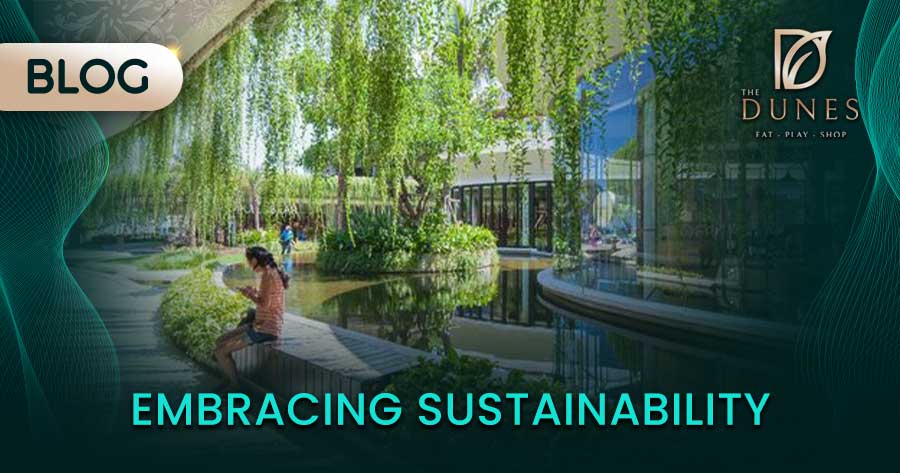
In an era where environmental concerns are also taking center stage, there is a need for Embracing Sustainability that extends far beyond individual efforts. Businesses, including malls, are being called upon to significantly reduce their carbon footprint and embrace more eco-friendly practices. Malls, which traditionally have a reputation for consumption and excess, are now becoming pioneers in sustainable innovation. In this blog, we’ll explore some of the noteworthy sustainable practices that malls around the world are adopting to make a positive impact on both the environment and their communities.
Energy Efficiency:
One of the primary areas where malls can make a difference is in energy consumption. Malls are increasingly investing in energy-efficient lighting, HVAC systems, and smart technology to monitor and manage energy usage. Solar panels on rooftops, energy-efficient lighting systems, and motion sensors that control lighting and HVAC in less-trafficked areas are all contributing to a significant reduction in energy consumption. This also represents a significant stride towards embracing sustainability.
Waste Management and Recycling:
Malls generate substantial amounts of waste daily. However, many malls are adopting robust waste management systems that focus on recycling and reducing waste going to landfills. Implementing clearly marked recycling bins, composting organic waste from food courts, and collaborating with recycling companies are effective strategies.
Sustainable Design and Construction:
The construction and design of malls are being reimagined with sustainability in mind. The use of eco-friendly building materials, designs that maximize natural light, green roofs, and rainwater harvesting systems are becoming increasingly common. These practices not only reduce the environmental impact but also create a healthier indoor environment for shoppers.
Eco-Friendly Retail Practices:
Malls are partnering with brands that prioritize sustainability and ethical production. From clothing made of organic materials to products with minimal packaging, malls are promoting and encouraging eco-friendly consumer choices.
Green Spaces and Urban Gardens:
Some malls are incorporating green spaces and even urban gardens within their premises. These areas not only provide a serene atmosphere for shoppers but also contribute to improved air quality and biodiversity in urban environments.
Water Conservation:
Water-saving initiatives are becoming increasingly also important for malls in regions prone to water scarcity. Implementing low-flow faucets, water-efficient landscaping, and utilizing recycled water for non-potable purposes are key strategies.
Community Engagement:
Malls are actively involving their communities in sustainability efforts. Hosting educational events, workshops, and campaigns to raise awareness about environmental issues and also promote sustainable habits among shoppers are impactful ways to engage.
Continuous Improvement:
Sustainability is an ongoing journey. Malls consistently evaluate their practices, seek innovative solutions, and also stay up-to-date with the latest green technologies to also further enhance their eco-friendly efforts.
Malls are no longer just places of consumption; they are also evolving into hubs of sustainable innovation. By implementing energy-efficient technologies, waste reduction strategies, sustainable design principles, and community engagement initiatives, malls are also setting an example for businesses across industries to embrace environmental responsibility. As shoppers, we can support these efforts by making conscious choices and supporting brands and malls that prioritize sustainability. Together, we can transform malls into eco-friendly havens that contribute positively to our planet.
Visit Avenue5 International if you want to know more about us, and Times Square for our project information or visit The Dunes Mall for more news and blogs.




